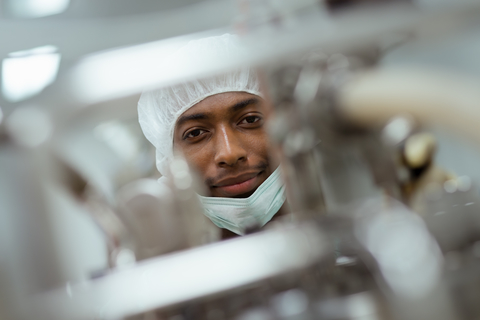Fake poo could save thousands of lives

A research project being led by the University of Bath is addressing the issue of safely disposing human waste by developing and testing fake poo in order to test and understand the drying process of faecal sludge.
Across the world 2.7 billion people do not have access to a flushing toilet, and instead rely on static sanitation systems like pit latrines to deal with their waste.
Human poo is generally made up of a third bacteria and dead cells, a third undigested fibre and a third fats and inorganic materials. However, faecal sludge from pit latrines and septic tanks is slightly different in composition as it has stabilised over a time. The University of Bath reports its lab-created poo will replicate the chemical and physical properties of faecal sludge as closely as possible and is made from a concoction of ingredients including yeast, hemp fibre and shredded tissue, peanut oil, calcium phosphate and water.
Postgraduate Researcher in Faecal Sludge Management at the University of Bath, Naomi Deering, said “Developing and testing batches of fake poo isn’t something many people can say they do as part of the day job. This area of research at times may not be the most pleasant but the potential impact of this project makes this work so worthwhile. Solar-drying faecal sludge in drying beds can provide a low-energy solution for sustainable faecal sludge management in developing countries. Whilst there has been great progress made in the installation of millions of toilets across the world, there is still a lot more work to be done to achieve the sustainable development goal of access to improved sanitation for all by 2030. The next challenge is to find safe and sustainable ways of treating and disposing of large quantities of untreated human waste. Especially in developing countries, there is a growing urgency to improve the current situation and develop low cost, low energy solutions which don’t affect existing toilet technology.”
Roughly 1.8 billion people have gained access to improved sanitation since 1990 thanks to the UN Millennium Goals and the more recent post-2015 UN Sustainable Development Goals. However, many of these systems are not connected to sewage systems and therefore require manual emptying and disposal.
A lack of suitable places to dispose of faecal sludge as well as poor understanding of the risks involved means it is often disposed of in nearby fields and rivers. The negative health impact of this cannot be understated. Germs found in faecal sludge cause illnesses such as diarrhoea which results in the deaths of more than seven hundred and fifty thousand children under five every year.
A key way of addressing this problem and improving sanitation is to research and develop safer, more efficient ways of treating sludge for the parts of the world where people do not have basic sewerage and centralised waste water treatment.
Following a pilot project by Buro Happold Engineering in which they investigated the suitability of covered, unplanted sludge drying beds for treating faecal sludge in Bangladesh, experts in the University of Bath’s Centre for Doctoral Training in Decarbonisation of the Built Environment (dCarb) are working with Dr Celia Way, Research Fellow at the University of Leeds, formerly of Buro Happold Engineering, to optimise the drying process in these beds.
Drying beds utilise natural sunlight and heat to dry out the sludge through evaporation and drainage. As it loses water, the temperature within the sludge rises, killing off parasite eggs and pathogens such as E.coli and salmonella. Once dried to a suitable consistency for removal, the sludge can be composted to allow safe use in agriculture as a soil conditioner.
In order to better understand the drying process in these beds and estimate the optimum time when it is safe to remove and compost, the researchers are developing fake poo in the laboratory. Building upon an original synthetic recipe created by the Pollution Research Group (PRG) at the University of KwaZulu-Natal in Durban, South Africa, this simulant sludge will be tested in drying beds exposed to a variety of humidity, temperature and solar radiation conditions. By testing the sludge in a range of conditions the researchers intend to provide best practice guidelines to inform the deployment and development of solar-based faecal sludge treatment technologies in a range of developing countries and climates.
While the availability of toilets and sanitation systems have greatly improved, managing the waste has become a major challenge as pit latrine and septic tanks fill up and require emptying. The unregulated disposal of untreated waste significantly undermines public health and it is estimated that every dollar invested in better sanitation returns up to $5.50 in social and economic benefits in developing countries, especially those in South Asia and Sub-Saharan Africa.
Director of the University of Bath’s Centre for Doctoral Training in Decarbonisation of the Built Environment (dCarb), Dr Sukumar Natarajan, said “The development of a low-carbon solution for faecal sludge management has the potential to transform the lives of millions of people around the world. We are therefore delighted to have supported this research as part of dCarb.”
The researchers hope this project will have a significant impact in reducing illness and death associated with the unregulated disposal of faecal sludge, and provide a regulatory design chart to inform governments and NGOs about correct faecal sludge drying times countries using low cost, low energy solutions.








